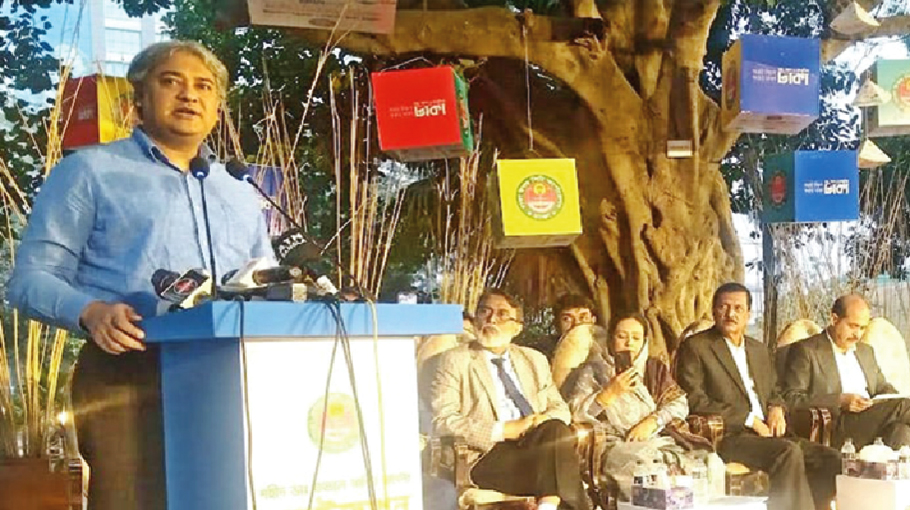Massive change in people’s mindset in 15 yrs: Arafat

State Minister for Broadcasting and Information Mohammad Ali Arafat on Thursday said the country's biggest development in the last 15 years is the massive change in people's point of view as now they can make once impossible thing possible.
"Bangladesh, led by Prime Minister Sheikh Hasina, has achieved unprecedented development in the last 15 years. The biggest development is the massive change of people's mindset," he told the inaugural ceremony of renovated Shaheed Dr Fazle Rabbi Park in Gulshan.
"We can now dream big and translate our dreams into reality. From this point of view, the government has announced its new vision of building 'Smart Bangladesh' after successfully implementing 'Digital Bangladesh," he added.
Dhaka North City Corporation (DNCC) mayor Md Atiqul Islam addressed the ceremony as the chief guest while Professor of Architecture of Bangladesh University of Engineering and Technology (BUET) Dr SM Nazmul Imam, DNCC's reserved ward number 7 councilor Amena Begum, Niketon Society president Dr MA Bashar, DNCC chief executive officer Mir Khairul Alam, Fazle Rabbi's son Omar Rabbi and DNCC ward number 19 councilor Mafizur Rahman also spoke.
The state minister said once maximum people of the country couldn't believe that the government can build the Padma Bridge with domestic funds but the AL government has made it possible.
"Once people couldn't believe 100 per cent electricity coverage can be ensured. Once the maximum people couldn't believe that metro-rail can be built successfully. These are realities now. When big works are done, those give courage, it changes mindset," he said.
Describing different eco-friendly factors of the Fazle Rabbi Park, Arafat thanked the initiators for renovating the park beautifully and keeping its name after Shaheed Dr Fazle Rabbi to show proper respect to the 1971 Liberation War martyr.
Later, the DNCC mayor and the state minister formally inaugurated the renovated park by unveiling a plaque on the park premises and then they along with other guests went round the park.




